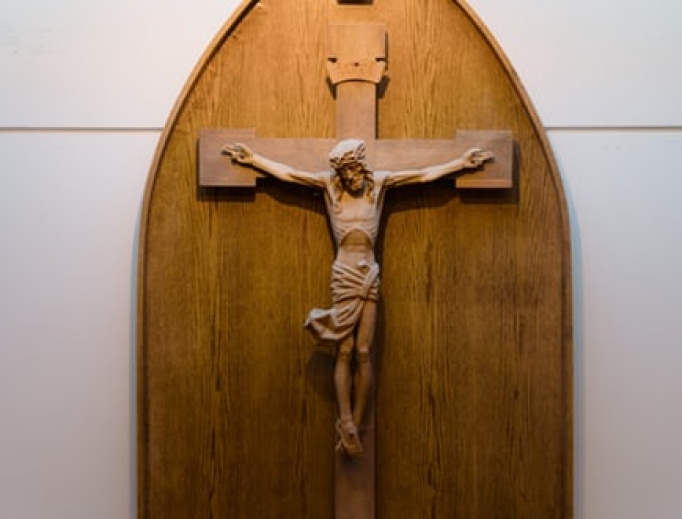User’s Guide to Sunday, Feb. 23
Sunday, Feb. 23, is the Seventh Sunday of Ordinary Time (Year A). Mass readings: Leviticus 19:1-2, 17-18; Psalm 103:1-4, 8, 10, 12-13; 1 Corinthians 3:16-23; Matthew 5:38-48.
In the second reading from Paul’s Letter to the Corinthians, he addresses the believers in Corinth as “the temple of God” (1 Corinthians 3:16), meaning that they constitute a place on earth in which the Holy Spirit of God dwells. Paul further elaborates on his description of this temple of God by recounting how he, as a “master builder,” laid the foundation of a grand building according to a design entrusted to him by Jesus Christ (1 Corinthians 3:10).
To appreciate the full significance of this image, it is helpful to remember that at the time he wrote this letter to the Church at Corinth, Paul had already tirelessly proclaimed Christ’s Gospel throughout Asia Minor and Greece, he had been imprisoned and beaten for its sake, and, most importantly, he had established Christian communities in more than a dozen cities.
It is surprising that Paul characterizes all of this as merely laying the foundation of the temple of God. He does not tout his activities as great accomplishments deserving of high praise because, for him, they amount to nothing more than a first step in building up the Church of Jesus Christ.
Paul knew that he had neither fully constructed the Church in Asia Minor and Greece, nor had he exhausted the preaching of Christ’s Gospel. Further, Paul was able to speak of his work serenely as just a beginning because he knew that it was not his job to do everything — God would enlist others after him to continue his work.
Thus Paul both warns the Corinthians against inhibiting the project of building up this “temple of God” and implores them to contribute to it — for, in various ways big and small, they had the potential and the responsibility to do so.
We, too, are responsible for continuing to build up this “temple of God,” which we know as the Catholic Church.
Although not always readily apparent, God’s spirit dwells here among us, and we, like Paul’s contemporaries in Corinth, are asked to continue on with the work that he began. Yet we might rightly ask, how are we to do this?
On the one hand, there are things we ought to avoid doing, such as gossiping about or unfairly criticizing our pastors or other members of the Church; for, should we sow seeds of discord in the community in this way, it would be tantamount to tearing down the edifice that others have struggled to build up before us.
On the other hand, there are ways that we can actively cooperate in building up the “temple of God,” which collectively might be summed up as giving ourselves unreservedly to the Church.
Sometimes this might mean contributing temporal goods to the Church, as far as we are able, while at others it might mean giving our time and our abilities.
How often is there a call for volunteers to serve in various capacities in the parish — from reading at Mass to serving on the parish council?
Though we may not immediately think of these as spiritual works that advance the Gospel of Christ, they are nonetheless the very kinds of activities that Paul would have characterized as building upon the foundation that he laid all those centuries ago.
at the Pontifical Faculty of the Immaculate Conception
at the Dominican House of Studies in Washington, D.C.

















